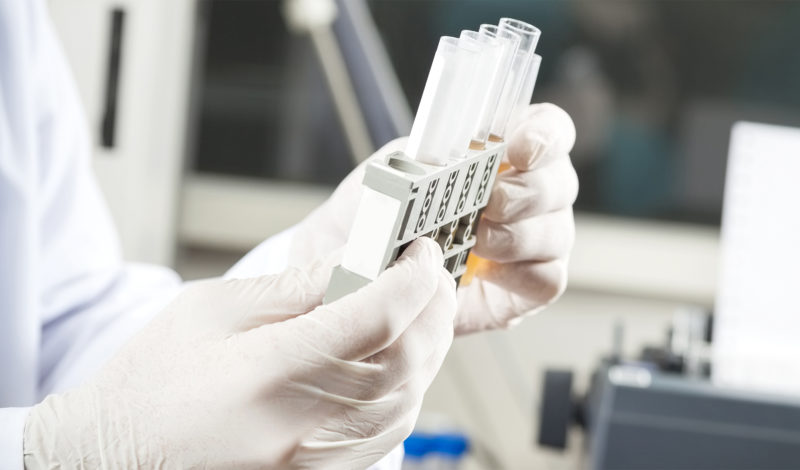Irritable bowel syndrome is a functional disorder of the intestinal tract that can trigger a variety of symptoms. They express [...]
Get to know your bacteria
How an intestinal flora analysis can help you overcome your constipation
During a session in the loo, breaking out in sweat means there is something wrong with your intestinal flora. Normally it should slip on the toilet. However, with constipation, everything accumulates in the intestine and sometimes nothing works anymore or only with great difficulty. Even if that can’t happen, you might feel like you’re about to burst. Constipation is terrible!
Sometimes obstipation – the technical term for constipation – is no reason to panic. In fact, constipation is not diagnosed until you are having fewer than three sessions a week. Even if you must do it regularly, but press as if you were making coal briquettes, it doesn’t matter if you visit the toilet every day.
Hard times arise in the colon – constipation
Your intestine is eight meters long and processes around 30,000 tons of food and 50,000 liters of liquid during your life. A remarkable performance isn’t it?!
Under normal circumstances the way of your food is as follows: it pushes through the esophagus into the stomach. It crushes your food; the stomach acid decomposes all germs and splits proteins. Then it continues in the small intestine. There the food paste is neutralized, and the bile dilutes all fats into smaller drops, which are distributed everywhere. Enzymes of the pancreas break down the carbohydrates, proteins are further broken down. The small intestine releases all nutrients such as vitamins and minerals in the blood, from where they enter the body everywhere. Now it goes into the colon. Water is extracted from the chyme there, bacteria continue to work on it and the intestinal cells form mucus in order to transport the chyme smoothly to the outside. This is done by the rectum, at the end of which there are two sphincters, the inner and outer. If you have constipation, the problem is usually in the colon and rectum. There are many causes for it like diseases, bad nutrition, stress or the disgust before strange toilets.
Do you “squash it” in a strange environment?
Then you’re a candidate for constipation. If you regularly deny yourself going to the toilet (e.g. at work), there will be congestion in your bowel. The food paste, which has been diligently processed by the bacteria in the colon, cannot get out through the rectum because you control the outer sphincter muscle. While the food paste in your colon stays longer than necessary, the microbes, i.e. the bacteria, continue to work. They draw more and more water from your food until your intestinal excretions are reduced to the point where they are as hard as coal briquettes.
Maybe you already got constipated on vacation? Most of the time it is due to the change of place and food. The classic is white bread, which is almost the only type of bread in many countries. If you’re usually the whole grain type, your intestines won’t cope well with these carbohydrates and they stuff you. After a few days, however, your intestinal flora usually regulates itself again.
When the colon works snoring
Stress, poor diet or too little exercise can make the colon slow and sluggish. It then needs twice as much time to channel everything to the rectum. Meanwhile, more water is extracted from the food and the pile becomes more compact and drier. At the same time, more food comes from the top of the small intestine, causing congestion and unpleasant constipation. First aid brings movement and plenty of water to stimulate intestinal activity again. If you use laxatives, be sure to take the right dosage and don’t take it so often. Otherwise, you will completely mess up your bowels.
If you get constipated more often, you can check some things out for yourself. How is your diet? Do you eat enough fiber like fruit, vegetables, and whole grain products? How much alcohol and coffee do you drink? Do you take any medication? Do you have any professional or private stress? Do you sleep well enough?
These are all factors that affect your gut flora. It’s made up of trillions of bacteria that take care of your digestion. With a test, you will find out what your intestinal flora is like. You will learn how to use your food, how well you digest fiber, burn carbohydrates and fats, whether you have a tendency to develop an intolerance to fructose, lactose or gluten, which of the three types of gut flora you belong to, how strong your immune system is and whether your intestinal flora is in balance. INTEST.pro is a self-test that you can easily realize at home. The kit includes a cotton swab with the one you take a small stool sample and put it in a tube that you send to our laboratory in an envelope. Our scientists create a profile of your intestinal flora and give you recommendations on how to make them happy. And this will also make you happy if you feel healthy and well and the session in the loo is completely relaxed.


